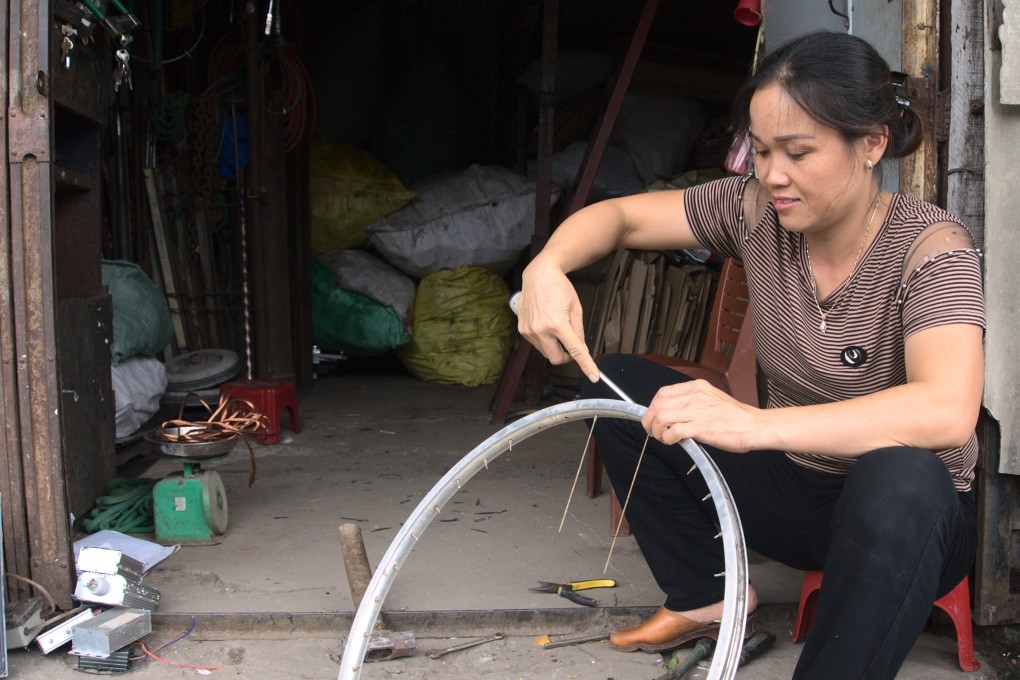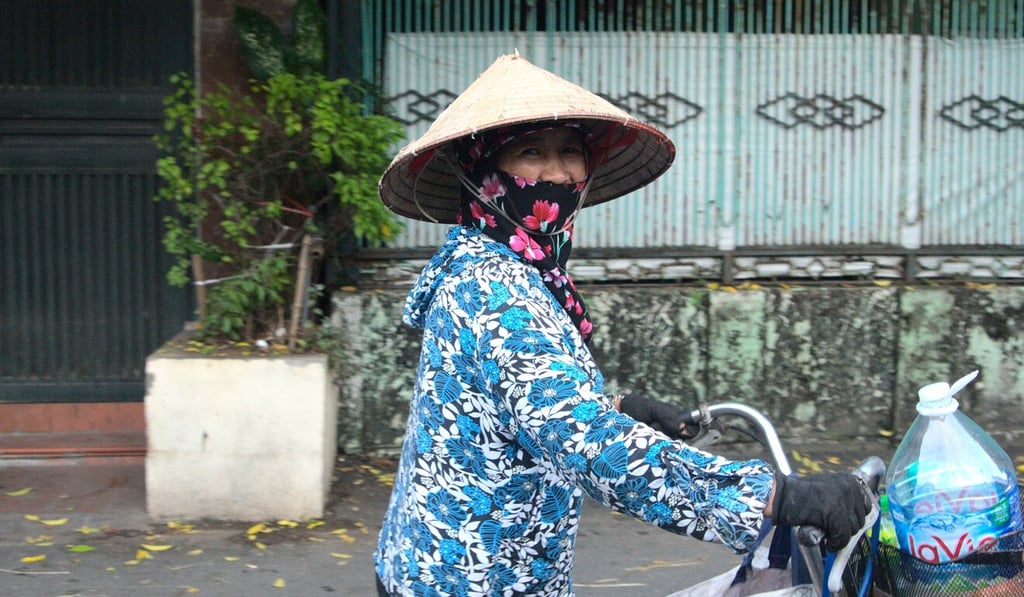Advertisement
Vietnam’s unsung recycling heroines have livelihoods ruined by Covid-19
- Across Southeast Asia, thousands of waste pickers – many of them women – help to recycle waste that would otherwise become landfill
- But plummeting prices for recyclables have hit them hard, and they receive no social security benefits nor a share of government pandemic relief
Reading Time:4 minutes
Why you can trust SCMP

Luong Thi Huyen makes a living out of recycling what others discard. The 55-year-old earns about 100,000 dong (US$4.31) a day in the Vietnamese capital of Hanoi collecting and sorting a wide variety of waste by hand.
“I buy from established sources like shops and restaurants. Cardboard boxes, plastic, iron, whatever they have I will buy,” said Huyen, who migrated from the northern province of Hung Yen in 2010 so she could support her son through university by picking and sorting trash.
Huyen is among the thousands of informal workers who are unsung heroines – many of the pickers are women – in Vietnam and around Southeast Asia dealing with the region’s mounting waste problem.
Advertisement
They buy recyclables from households and businesses, which they resell through middlemen to the facilities where the materials are finally recycled, beginning the process again.

Advertisement
According to a 2017 report by the United Nations’ Environment Programme, pickers play a part in every stage of the waste management process from collection and transport to disposal in all Southeast Asian nations except Singapore, which stands apart thanks to its well-structured waste management system that sees much of the country’s refuse incinerated to generate energy.
Advertisement
Select Voice
Select Speed
1.00x